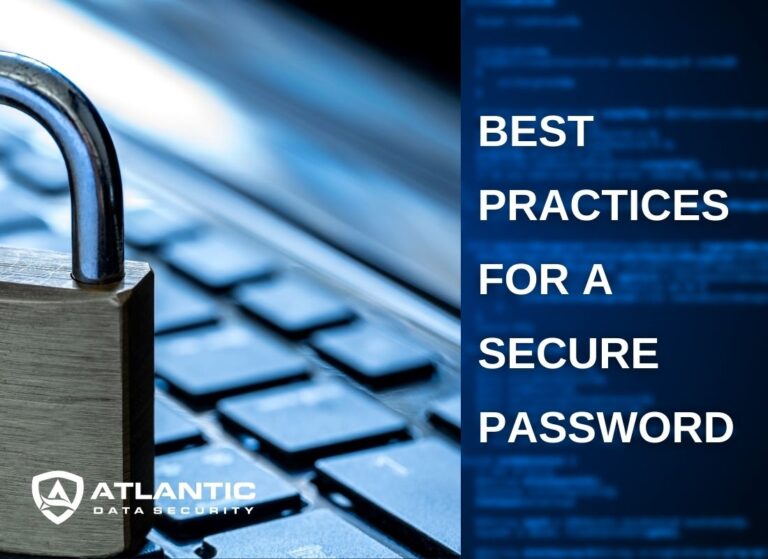Understanding and implementing best practices for password security is essential. Safeguarding sensitive information demands a keen understanding of the vulnerabilities associated with passwords. Strong passwords serve as the first line of defense against cyber-attacks. We all know that easily guessable codes like “12345” or “password” are terrible, but many of us still use too short, weak, or guessable passwords. 65% of us reuse passwords between different accounts
What are some of the best ways to ensure your password is secure? From crafting complex passwords to beat cracking algorithms to embracing multi-layered authentication methods, learn how to improve your security posture and protect your digital identity.
Consequences of Poor Password Security
Access to our sensitive personal and professional data is almost always gated by passwords. Weak passwords pose serious risks. They can lead to substantial financial losses, business disruptions, and reputational harm.
On a personal level, the consequences of a compromised password can be devastating. Bad passwords can enable threat actors to steal banking credentials or personal data. These breaches often result in direct financial theft. Identity theft facilitated through stolen credentials can have more far-reaching consequences, requiring considerable time and resources to rectify.
For businesses and organizations, the stakes are equally high. A compromised password can expose sensitive systems or data, leading to a full-scale cyberattack. The aftermath of such disruptions is not just the immediate halt in productivity but also the cascading effect on business continuity, client trust, and long-term strategic objectives. The ease with which cybercriminals can exploit weak passwords to perpetrate these acts underscores the need for robust password management in our personal digital lives.
Best Practices for Password Security
Strong password habits serve as the first line of defense against cyber threats. Practical, effective strategies for creating and managing passwords will enhance your security.
Writing a Strong Password
Understanding the structure of a secure password can help you create strong passwords. Password complexity is vital to protecting your secure access from brute force attacks. At current computing power, a password that is eight characters long and uses only lowercase letters can be cracked in under a second.
Fortunately, increasing the length and range of characters used by incorporating capitals, numbers, and special characters exponentially increases the complexity of the password and the average time it would take a brute-force attack to crack it. A 12-character password that uses all types of characters would take modern computers about 34,000 years to brute force. To account for further advances in computing power and efficiency, it’s best to go even longer, targeting at least 16-18 characters with as much character variety as possible.
It’s also important to note that you can significantly undermine the security of your password by using common phrases or personally related information like birthdates, pet names, or similar. Password cracking algorithms often account for common words or phrases in their attempts, and threat actors trying to target an individual will often incorporate personal information that is commonly used for passwords into their cracking attempts.
Update Passwords Regularly
Despite the ability of cracking algorithms to rapidly break down insecure passwords, most password-related breaches happen when password information is stolen, either through [social engineering attacks] or through stealing password databases. Often, passwords are stolen by threat actors who sell the information to other hackers to use in an attack.
The loss of a password can result in a cyberattack weeks or months down the road.
The best way to cut off this line of attack is to change your password regularly [CISA] recommends changing passwords at least every six months, ideally every three months. Many other security standards like the [NIST Cybersecurity Framework] also call for organizations to establish a policy and enforcement procedure to ensure their employees update passwords regularly to maintain security. Despite being a potential inconvenience, the longer a password is constant, the less secure it gets.
Use Multifactor Authentication
While passwords have been the gold standard for user authentication for decades, there has been a growing realization of the need for defense-in-depth: best password practices require you not to rely solely on passwords. Multifactor authentication (MFA) has become a fundamental principle in user authentication.
By requiring access to an additional authentication action, such as possession of the security key or authentication app, you prevent your account from being compromised due to a single point of failure in your password. While MFA methods are not an impervious solution that allows you to ignore other password best practices, they significantly strengthen your resilience.
Use a Password Manager
Between the need for high complexity, regular updates, and unique passwords for dozens of accounts, remembering all our passwords and keeping track of them is a task beyond us. Password managers provide a comprehensive solution for all these challenges, typically providing password generation tools to help you maximize your password complexity and providing a repository to keep your passwords safe and remembered.
Of course, your password manager then becomes a precious asset in your security setup. It’s worth taking some time to ensure that you choose a solution that meets your needs: Is the encryption technology used solid? Is the information stored in the cloud or on your hardware? Does the provider have a history of data breaches? If so, how have they responded?

Conclusion
The importance of robust password security cannot be overstated. Whether it’s safeguarding personal finances against identity theft or protecting organizational assets from cyberattacks, strong passwords are pivotal. You can significantly reduce the risk of digital threats by adopting best practices such as creating complex passwords, updating them regularly, using multifactor authentication, and utilizing reliable password managers.
However, password security is just one facet of a comprehensive cybersecurity strategy. At Atlantic Data Security, we understand that navigating the complexities of digital protection requires expertise and tailored solutions. Our team of seasoned cybersecurity professionals is dedicated to equipping you with the tools and knowledge needed for resilient digital defense. We offer end-to-end cybersecurity services, including personalized consultations, to address your security needs.
Don’t let your digital security be an afterthought. Speak with an advisor today.

 Why ADS
Why ADS Executive Team
Executive Team Careers
Careers Certifications
Certifications Application Security
Application Security Cloud Security
Cloud Security Cybersecurity
Cybersecurity Data Security
Data Security Endpoint Security
Endpoint Security Professional Security Services
Professional Security Services Network Security
Network Security Perimeter Security
Perimeter Security Staff Augmentation
Staff Augmentation Training
Training Blog
Blog
